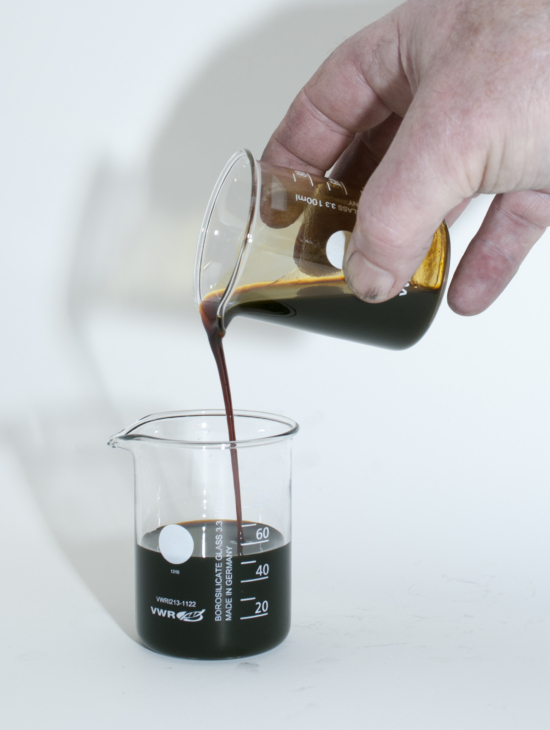Michelin joins Antin, Enviro announcing first end-of-life tyre recycling plant in Sweden
 Oil recovered via Enviro’s pyrolysis process (Photo: Michelin)
Oil recovered via Enviro’s pyrolysis process (Photo: Michelin)
Recovered steel (Photo: Michelin)
Michelin has finalised its shared investment plan alongside joint venture partners Enviro and Antin for the construction of a first end-of-life tyre recycling plant in Uddevalla, Sweden. The project, which broke ground in February, is based on Enviro’s pyrolysis technology. It has secured a series of multi-year contracts for the supply of used tyres and the upcycling of recovered carbon black and pyrolysis oil. The first plant has targeted a capacity to recycle approximately 35,000 tons of used tyres annually and to create up to 40 green jobs in the local community in its first phase.
Antin and Enviro entered into a joint venture in March 2023 to build a series of plants in chosen European locations. Antin is a majority shareholder of the JV, Michelin a minority shareholder, and Enviro has an option to become a significant minority shareholder.
The first factory, which will be in Uddevalla, Sweden, has obtained all the necessary environmental and building permits and authorisations. Construction has already begun, and the plant is expected to be operational during 2025.
Michelin says it has continued its approach of proactively supporting the development of used tyre recycling ecosystems and is committed to collaborating on the future developments of this joint venture. Michelin signed a multi-year supply agreement regarding carbon black and pyrolysis oil.
The JV plans to build further factories throughout Europe. It wants to reach an annual recycling capacity of one million tons of used tyres. The Uddevalla plant will be a pioneer, with the JV constructing additional factories in other European countries in order to ensure a rapid rollout of the technology. Antin and Enviro have already agreed to a financing plan for the construction of these factories.
Recovered carbon black (Photo: Michelin)
The volume of tyres that reach the end of their life cycle and are then discarded has continued to rise, now annually amounting to 3.5 million tons within Europe alone. This JV was established to develop used tyre recycling throughout Europe, producing sustainable raw materials. Foremost among these materials produced are recovered carbon black and oils that may then be used in the tyre manufacturing and in the petrochemical industry. By replacing virgin carbon black with the joint venture’s recovered material, it is possible to reduce the emissions arising from the use of conventional carbon black by more than 90 per cent.
“Michelin has strongly supported the creation of this joint venture between Enviro and Antin,” says Maude Portigliatti, high-tech materials business director – member of the Michelin Group Executive Committee. “The undertaking began in 2020 when Michelin became a shareholder in Enviro to support the maturation of this technology. Today, we are moving on to a new step with the finalization of the investment for the construction of this first factory in Sweden. The launch of this ambitious industrial program, which is expected to be developed on a European scale, perfectly echoes the strategic objectives of the Michelin Group to reach 100 per cent renewable and recycled materials by 2050, reducing the overall environmental impact of its tyres.”
“Antin is delighted to join Enviro and Michelin to announce approval for the construction of the first of several plants planned by the joint venture,” adds Anand Jagannathan, Antin senior partner. “We are excited to help create a fully circular platform which will restore end of life tyres to its constituent raw materials that will be sustainably used over and over again. This is part of Antin NextGen’s strategy to focus on proven technologies that require substantial capital to scale.”
“The plant in Uddevalla will be the joint venture’s first full-scale tyre recycling plant and an important first step in our joint effort to create the world’s first large-scale tyre recycling group. Together we will play a crucial role in the industrial transformation needed for a more sustainable future,” says Alf Blomqvist, chairman of Scandinavian Enviro Systems.




 Ring
Ring
Comments